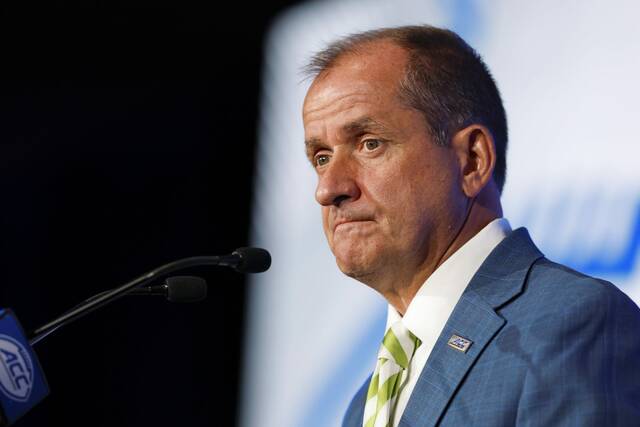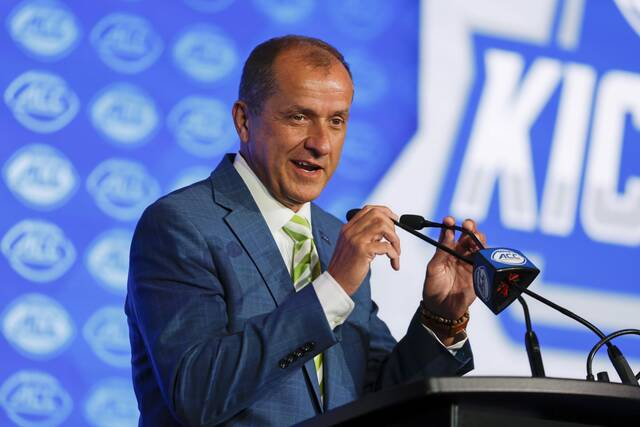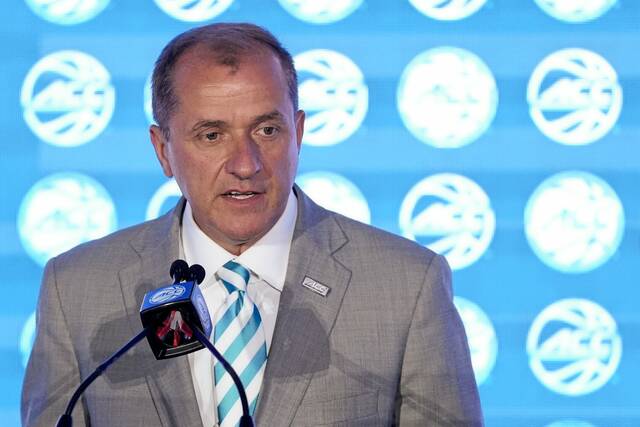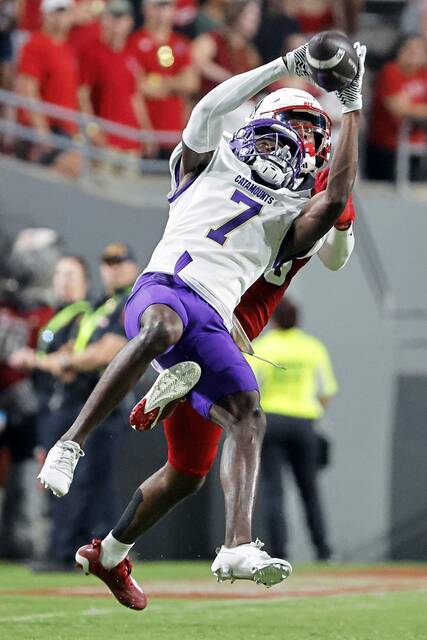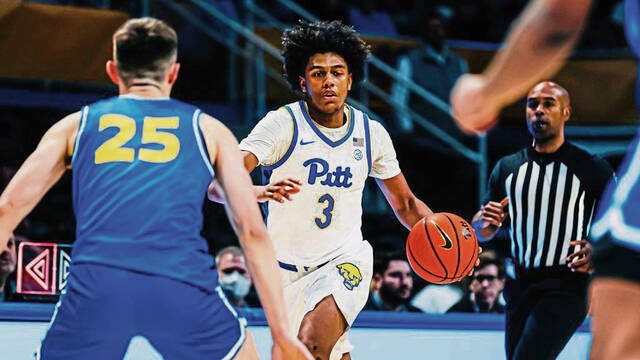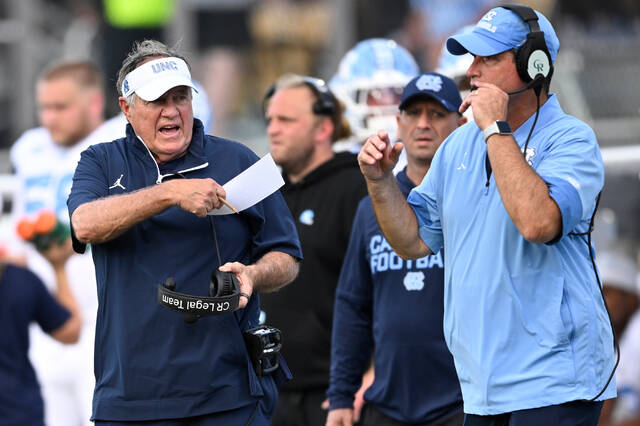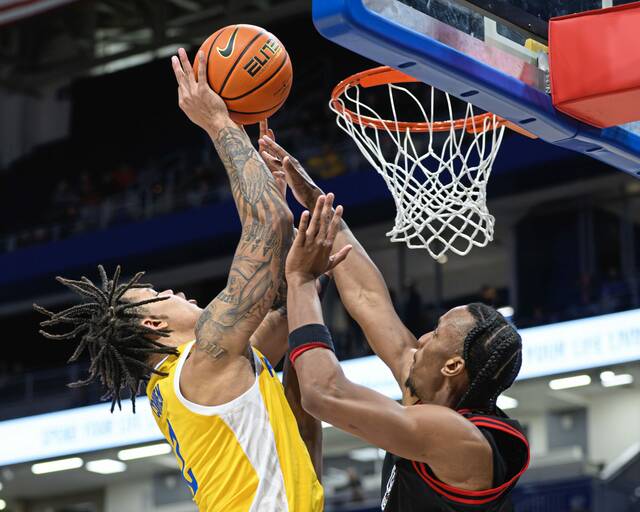It’s a tumultuous time to be in a college sports leadership position.
That’s largely the result of seismic alterations to the student-athlete experience centered around NIL, following lengthy discussion and legal jousting.
ACC commissioner Jim Phillips, like his peers at the helm of the other three power conferences, has had to navigate this new landscape, on top of other critical issues facing his own league, such as litigation with a pair of member institutions, a resulting shift in conference revenue distribution, plus inking a new TV deal with ESPN.
Phillips acknowledged the litany of ongoing challenges facing college athletics and the ACC on Tuesday in Charlotte, N.C., at the 2025 ACC Football Kickoff, but overall, projected confidence.
“Competitively, academically, financially and beyond, it was another truly remarkable year for the ACC, which is attributed to the exceptional leadership at our institutions, led by our CEOs and (athletic directors),” Phillips said.
“There will always be more to do, but we are well-positioned for the future, and I’m confident that our league will remain laser focused in building upon these successes by further embracing innovation, creativity and competition.”
Phillips touted the ACC’s record revenue from last fiscal year at $711 million, with more than $45 million distributed to member schools.
The ACC also in late January extended its TV deal with ESPN through 2036, with ESPN picking up an option that, if had not been renewed, would have seen the partnership end following the 2027 season.
Phillips’ remarks at the ACC Football Kickoff and ensuing Q&A session with reporters in Charlotte were wide-ranging.
• Phillips offered his support of expansion of the College Football Playoff from a 12-team field via increasing access outside of the five highest-seeded conference champions.
“Fairness and access should also be part of the equation,” he said. “We have a really good playoff right now. It’s the 5 plus 7 model. I’m open to 5 plus 9 and 5 plus 11. I always look to our championships to try to have as much access as possible. Within reason, it has to make sense.
“I look forward to our ongoing conversations, and I understand why other leagues feel differently about positioning of the future format. So we’ll look forward to some of those ongoing conversations.”
• At the start of 2025, the ACC looked to be at serious risk of crumbling in a similar fashion to the Pac-12, with the league, Clemson and Florida State embroiled in a series of lawsuits pertaining to massive exit fees in the event of a university departing the conference, as well as the ACC’s revenue-sharing model.
In early March, those suits were settled, with the ACC announcing an enhanced revenue-sharing model that incentivizes higher TV viewership.
Specifically, 60% of annual TV revenue that the ACC pays to its members will be based on five-year viewership figures, and the other 40% would be distributed equally.
For top national programs like the Tigers and Seminoles, that offers a sure way to get a larger piece of the pie, but ACC institutions struggling to produce robust TV numbers will be on the hook for losses in revenue.
Phillips painted Clemson’s and FSU’s appeasement as a positive for the ACC’s immediate future.
“The settlement provides long-term stability for the league, with the potential for all members to benefit from additional revenue opportunities,” he said. “Leading in the distribution of revenue based on success and now with an additional revenue distribution model that is based on viewership, the ACC has been innovative in its approach to conference revenues.
“As part of the modernization of college athletics, these new models allow us to maintain distribution for all ACC members that are above most other conferences while also providing flexibility for competition at the highest levels of revenue.”
Phillips also addressed the potential of Clemson and Florida State simply demanding a further larger cut of revenues in the future, as well as what the ACC’s new model means for schools who fail to regularly to field top-tier football and basketball programs.
While he didn’t go as far to say the settlement or major revenue-sharing changes were perfect, Phillips believes they are in the ACC’s best interest.
“I have a responsibility to make sure that our ACC schools want to be in this league, not just have to be in this league, and I think that’s important,” Phillips said. “If you want to earn more money, then you’re going to need to invest.
“… Everybody’s going to get a certain level of viewership dollars, which, again, there will be a little bit of teeter-tottering based on your performance, based on your team — and that’s healthy. It may not fit all leagues or other leagues, but I know that was part of what was right and a reconciliation for the league.”
• Regarding the House vs. NCAA settlement in early June, rubber stamping universities’ ability to revenue-share with student-athletes while awarding nearly $3 billion in back pay to former student-athletes from 2016 on, Phillips acknowledged the gravity of the ruling.
He also recognized the prospects of some bumps in the road as this new era of college sports gets underway while calling for a national standard around NIL, as opposed to varying state-by-state regulations.
“As we move forward and continue to meet this true reset moment, we must remember that everything will not be perfect immediately,” Phillips said. “Without question, there’s still significant work to be done, but we must acknowledge that, collectively, we are truly in a better place and we have a responsibility to make it work in the future.
“With that said, we also need Congress to act. We’ll continue to push for federal legislation that will support our efforts to ensure a uniform, stable and legally sound future.”
So is the term “student-athlete” now out of vogue, to be replaced by “employee?”
Phillips pushed back on that suggestion based on his own personal dealings with ACC student-athletes.
“I haven’t had one student-athlete come up to me to say that they want to be an employee,” Phillips said. “I think they appreciate being in college, going to school, working critically hard to earn a valuable degree and playing a sport at the highest level.
“It’s wonderful that we can now pay our student-athletes. I think it’s fantastic. How that distribution comes out and who gets those dollars, et cetera, those are still to be determined by schools, but that’s the next step in the modernization of college sports is to get that reaffirmation that these indeed are student-athletes.”
• On top of addressing a plethora of important issues with implications in college sports and the ACC, Phillips announced a pair of notable league policies that will soon be implemented:
The ACC has created a player availability reporting policy for each member institution in football, men’s and women’s basketball and baseball, all of which will be publicly available on the ACC’s website. For football, that will entail an availability report two days before every conference game, with updates one day before and on gameday itself.
The decision, per Phillips, comes out of a commitment to “best protect our student-athletes and our multi-faceted approach to addressing the effects of sports wagering.” Phillips envisions the policy as curbing attempts by entities or individuals who seek to gather inside information regarding player availability, including but not limited to injuries, for gambling purposes.
Only a player’s status, not any specific reasons, will be listed on the availability reports.
Unsurprisingly, coaches around the ACC appeared to be less than thrilled when Phillips relayed the news.
“Coaches are hard to change, but when we told them that we were doing it, no one said anything on the call,” Phillips said. “I don’t know what that meant, other than they were accepting it. It’s the right thing.”
As of Tuesday, Phillips said the ACC had not hashed out specific prospective fines or penalties for programs out of compliance with the rule.
Additionally, Phillips unveiled fresh safety measures for football and men’s and women’s basketball. ACC members will be required to submit event security plans for third-party independent review by the start of the 2026-27 academic year.
Visiting teams being able to safely leave a field or court of play was a driving force in the new rule, as well as “ensur(ing) that only participants, coaches, officials, and authorized personnel are allowed in the competition area before, during and at the conclusion of any competition.”
Phillips did have the corresponding fine structure for safety infractions, including court or field stormings: $50,000 (first occurrence), $100,000 (second) and $200,000 (third and subsequent), accumulating through two football and basketball seasons for deposit into the James-Corrigan-Swofford Postgraduate Scholarship account.


